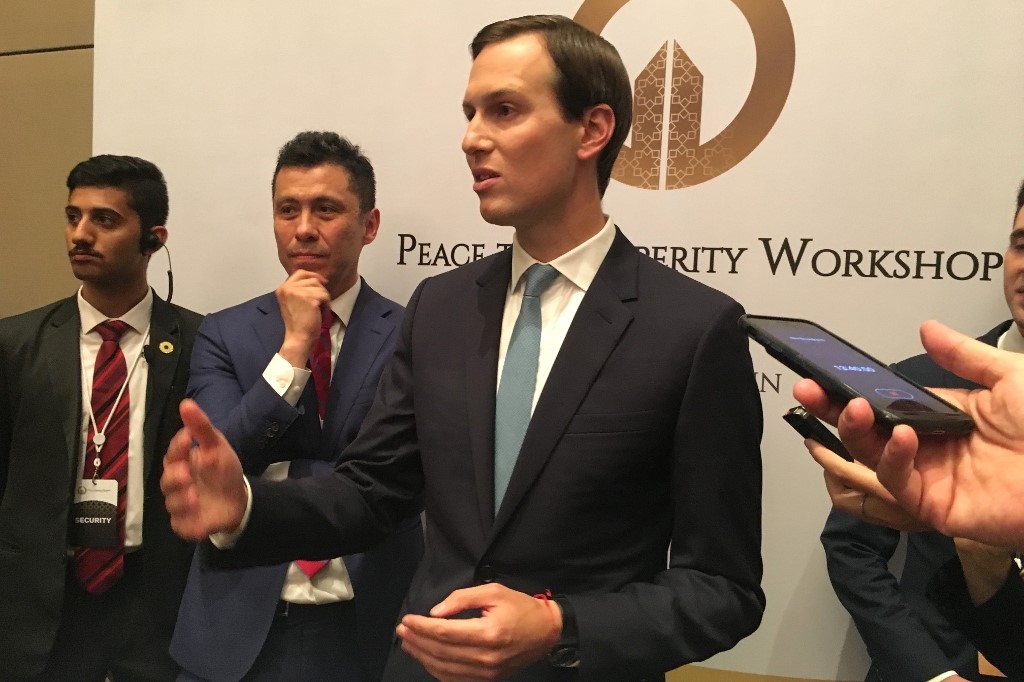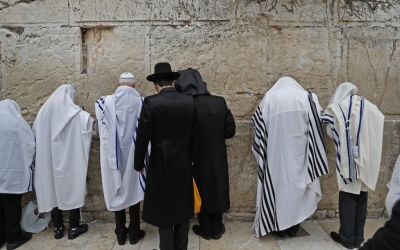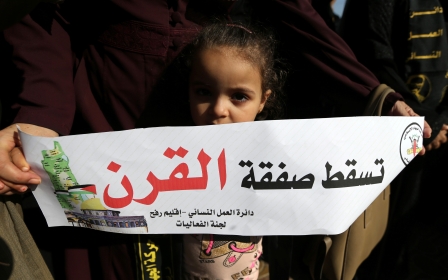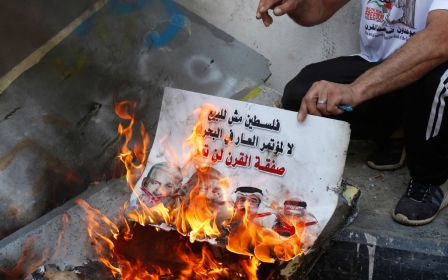Nothing can destroy the dream of Palestinian liberation

Packaging last month's US-led "Peace to Prosperity" workshop in the Bahraini capital as the "economic" component of the Trump administration's Middle East plan was profoundly misleading, as economics and politics are interdependent.
All parts of the US "deal of the century" are thoroughly political, aiming to de-recognise Palestinian national rights and aspirations for freedom on the one hand, and recognise Israeli colonialism as legitimate and eternal on the other.
The political ambitions are self-evident, even from the title of the workshop, which plainly abandons the "land for peace" principle that has theoretically been the lynchpin of the Arab-Israeli peace process since 1967.
Stalled peace process
This annuls the pretence of the peace process and removes the land and the colonial facts on the ground from the equation, paving the way for an Israeli-determined so-called regional "economic peace," as laid out by Israeli Prime Minister Benjamin Netanyahu a decade ago.
New MEE newsletter: Jerusalem Dispatch
Sign up to get the latest insights and analysis on Israel-Palestine, alongside Turkey Unpacked and other MEE newsletters
The workshop is a reworked version of Netanyahu's 2009 speech which echoes an old Zionist political vision to impose "Jewish domination [over the Palestinians] in exchange of nominal economic benefits," as Joseph Massad brilliantly demonstrates. By exchanging territory-based national sovereignty for financial capital, the economic workshop is already determining the terms of the political component.
Amid Israel's ongoing legislative process of annexing Palestinian land, the intended consequence of this process is to nullify the prospect of Palestinian self-determination over any part of historic Palestine.
It is no coincidence that the widespread discussion over the 'deal of the century' has emerged as the peace process has reached an impasse
It is no coincidence that the widespread discussion over the "deal of the century" has emerged as the peace process has reached an impasse. The Trump administration's "deal" discourse has been filling a vacuum left by the non-existent peace process, keeping everyone distracted for years.
It is therefore cogent to approach the "deal of the century" as an organised imperial discourse, rather than a single declaration, document or event. In particular, this discourse revives, repackages and authorises the Israeli "economic peace" paradigm in order to sustain the subjugation of the Palestinians.
A needed distraction
While the narrative of the peace process and two-state solution has provided a needed distraction to facilitate Israel's steady settler-colonial expansion, the "deal" discourse formalises these colonial achievements as self-evident truths and irreversible facts.
The US and Israel, two settler-colonies, are promulgating the "deal" discourse to eliminate Palestinian political rights and aspirations, as a prelude to legalising an everlasting Israeli colonisation of Palestinian and Arab land.
The second and more harmful function of the "deal" discourse is that it negates Palestinians’ national and historic rights. While conceding no substance to the Palestinians, the "deal" discourse displaces their rights for statehood, sovereignty, East Jerusalem, economic independence, right of return, and recognition as a political and sovereign nation like others.
Simultaneously, the phasing out of UNRWA, the United Nations agency that provides aid to Palestinian refugees, aims to deprive these refugees of their status and rights.
The US has orchestrated economic, diplomatic and psychological attacks to troll and humiliate Palestinians, representing them as lacking and "incapable" of governing themselves, and therefore it is "a high bar" for them to be free from Israeli trusteeship. All they deserve is an "opportunity to live a better life" at the threshold of basic material needs, as the White House senior adviser Jared Kushner put it.
This arrogance and demeaning misrecognition coming out of the White House towards the Palestinians belong to the colonial era, when imposing depreciating self-images was a means to psychologically damage and dehumanise subjugated people, as the celebrated anti-colonial thinker Frantz Fanon vigorously argued.
The pursuit of justice
At the Bahrain conference, Palestinians were represented by others as a mere bunch of individuals, short of a political and national agency.
They are excluded precisely because their political and national elimination is at stake. Thus, the profound implication of that workshop - and the "deal" discourse - sets the ground for non-recognition of the Palestinians as a people.
That is exactly why the Palestinians steadfastly and unitedly are resisting this endeavour. In fact, resistance is their only choice, for acceptance of the "deal" discourse, economic or political, is tantamount to self-denial.
Because the "deal" is not a singular event but an organised discourse, resistance must be built on a clear direction, vision and intellectual underpinning in order to sustain it and enforce decolonisation.
The closure of the "peace process" chapter provides many reasons for optimism. Most significant is the dissolution of the conditions that have fragmented Palestinians and crippled their political institutions.
Popular struggle, resistance and steadfastness in the pursuit of justice, freedom, human rights and dignity for all is the only acceptable and winnable vision, as Edward Said powerfully argued. No amount of power can destroy the idea of Palestinian liberation and self-determination.
The views expressed in this article belong to the author and do not necessarily reflect the editorial policy of Middle East Eye.
Middle East Eye delivers independent and unrivalled coverage and analysis of the Middle East, North Africa and beyond. To learn more about republishing this content and the associated fees, please fill out this form. More about MEE can be found here.







